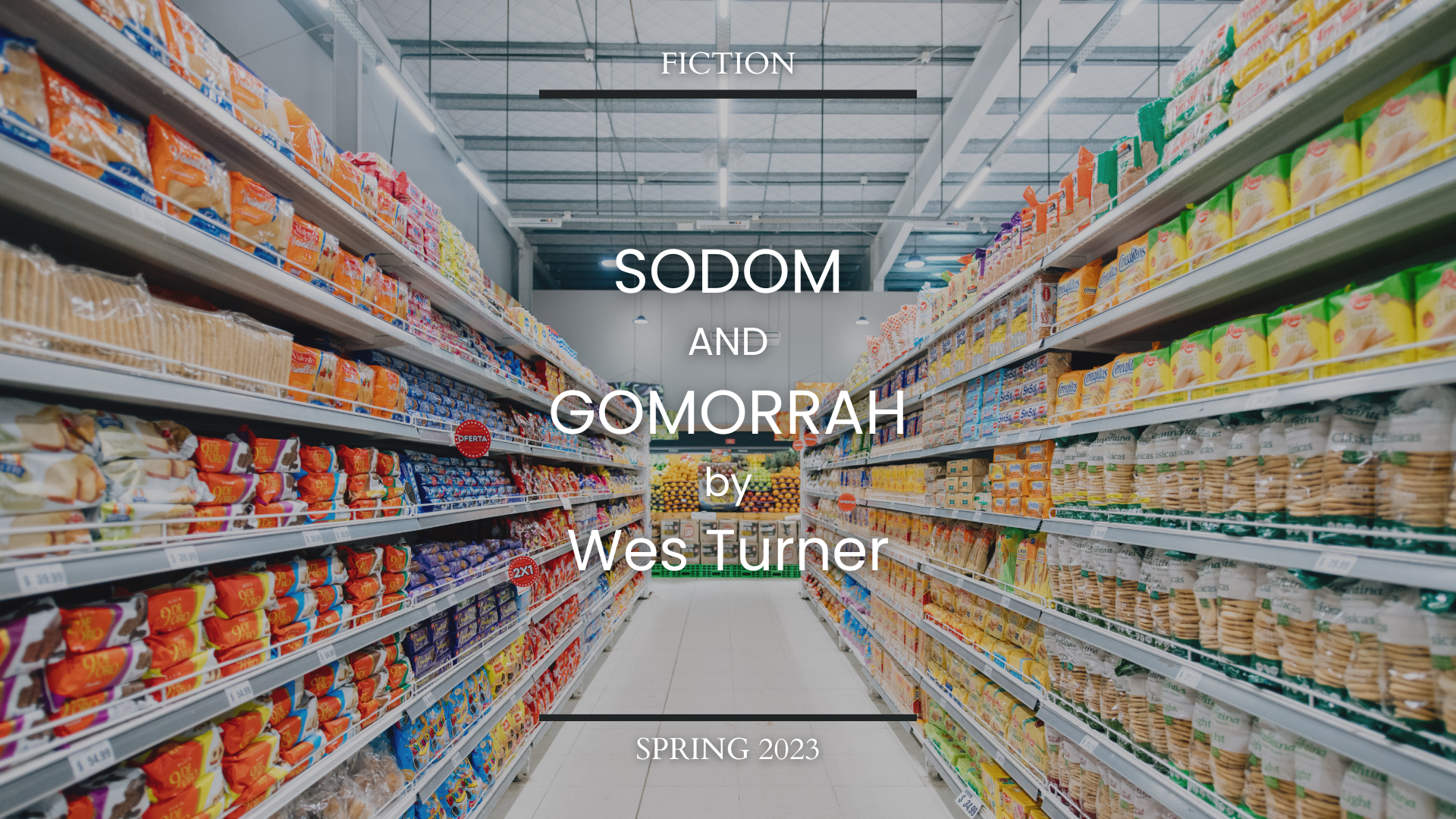Articles/Essays – Volume 56, No. 1
Sodom and Gomorrah
Listen to the interview about this piece here.
Listen to the audio version of this piece here.
A man stands naked on the rubber of a checkout counter’s clnveyer belt, face smeared with something red. I’m checking the expiration date on the back of a suspicious-looking soup can; down the aisle, a woman haggles with the butcher over a pound of lamb.
“Adam didn’t see the difference between their loins until he tasted the sour of Eden’s trees,” the man says.
Oh, I whisper to the soup can. We have ourselves a prophet. The fluorescent lights of the supermarket exaggerate the deep creases of his jowls.
He speaks as though we weren’t all like him once; as if we didn’t all arrive here grim-faced pilgrims, wet feet charting our fall from grace. We worship in new churches now, libraries and mirrors and midnight raves, our holy water sometimes oil sponged into bread, other times shot glasses twinkling with cheap tequila and broken glowsticks. But we never forget the stories our mothers taught us; their scriptures follow us like shadows.
“Why did God want Eve to eat the fruit?” someone shouts a few aisles over. It is meant as a joke, but the prophet doesn’t notice and no one laughs.
“God is the great divider,” the prophet says. “Dividing light from darkness, Eve from Adam, the righteous from the wicked.”
“I thought dichotomy was the devil’s game,” the same heckler says. This time someone chuckles.
The prophet sighs and looks behind him toward the storefront windows. His ribs strain against the skin of his torso as it twists and tightens.
“We lived there once,” he says. But for the dark hair on his chest, he resembles a Bernini. There is longing in his posture.
“What the fuck does that mean?” a new voice says, and a whirr of murmurs begins to build. I put my soup can back on the metal shelf and walk toward the whoosh of the sliding glass doors.
I know his meaning: that out beyond this supermarket, beyond the crooked teeth of our cemetery and our crumbling walls and burnt-out street lights, there is Zion, the City of Lightning. I remember the marble skyscrapers, the gilded streetcars and neatly trimmed hedges. Tulips lining avenues.
I remember the days we Zionians gathered together to dance, our movements beginning like a shared secret in the subtle sway of our fire-lit hips. Then, twisting and swelling until the seismic rhythm crested like a wave, our backs arching and shoulders rolling and arms flitting like falling manna, our drumming toes so powerful they could have split the world in two. There were no strangers at our supermarkets then.
Note: The Dialogue Foundation provides the web format of this article as a courtesy. There may be unintentional differences from the printed version. For citational and bibliographical purposes, please use the printed version or the PDFs provided online and on JSTOR.


 Back to full Issue
Back to full Issue

